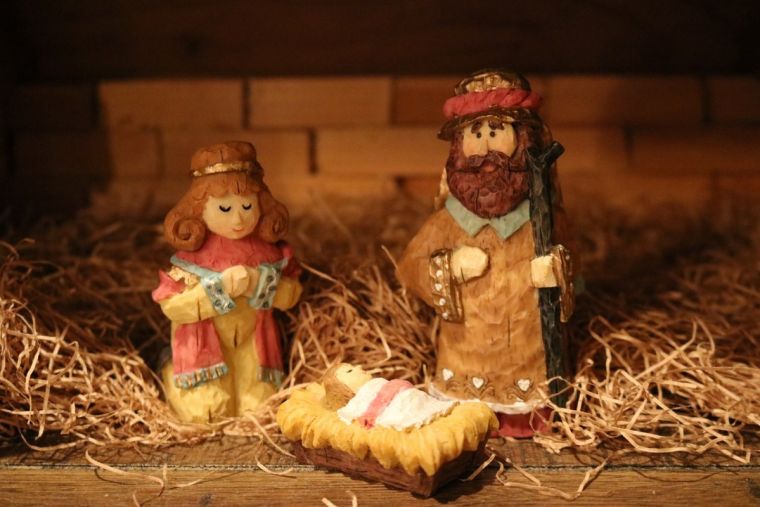Are The Christmas Stories True, Or Myths?

Of all the events in the New Testament, those surrounding Jesus' birth are possibly the most accused of being inauthentic. Perhaps if adults first heard the accounts of shepherds, three kings and stable births at school, then they are quick to put them in the same mental cupboard as Santa and his reindeers. Some secular academics are also keen to dismiss the exciting narratives at the beginning of Matthew and Luke's Gospels as legend rather than historical fact.
If anyone comes to the Christmas story believing that miracles such as the virgin birth are impossible, or that angels don't exist, then of course they have to reject the idea that the nativity stories are historical. But is there any evidence that this was so?
Certainly, some of our Christmas traditions, such as that Jesus was born on December 25th, or that it was in the year 0AD, are just human inventions. But the Bible doesn't say anything about these things. So what's the evidence for what can actually be found in Scripture?
Jesus' birth
The two nativity narratives are sometimes accused of inauthenticity because they aren't identical. Luke tells of the shepherds, while Matthew cites the three wise men. Luke says Mary and Joseph were in Bethlehem because of a census, whereas the purpose isn't discussed in Matthew. But they contain no information that plainly conflicts.
If the Gospels are independent historical records, you should expect some corroboration but not identical accounts. If two accounts are from different writers and based on eyewitnesses, they should be phrased differently and told differently. Observe how two of your friends or family retell a favourite funny story about you – they will use different details, and emphasise different points – but the important information and the punchline will most likely be there.
Matthew and Luke do agree on important information, such as: Jesus was born of a virgin – Mary, in Bethlehem, at the time of Herod 'the Great.' The fact each account has extra information that is not in the other doesn't mean they are not authentic and could bolster the argument they are based on eyewitness accounts.
If you hear claims that they aren't historical, ask them – what's the evidence? What's a plausible reason the writers would do this? Would the earliest Christians give up their lives in persecution for made-up stories?
The census, Herod, and the massacre of the innocents
There is independent historical evidence that agrees with the nativity accounts. Luke, who at the beginning of his Gospel states he is using eyewitness testimony, accurately records Augustus as the Roman emperor of the time. Matthew correctly cites the death of 'King Herod' and the coming into power of Herod of Archelaus in Judea.
Not all the historical events mentioned in the nativity narratives have corroboration outside of the Bible. But it's estimated that we have today less than one per cent of ancient literature that has ever existed, so there are plenty of things that happened in the past that we don't have evidence for today. Lack of corroboration doesn't mean that it didn't happen. It's lucky to get two accounts of the same events in ancient history, and when you do get two, they usually conflict. So the Gospels are remarkably coherent for ancient historical documents.
There have been questions over the accuracy of some of Luke's details as they seem to conflict with other historical data, particularly the writings of Josephus. King Herod is estimated to have died in 4BC (though this is debated), and Luke says Jesus was born during his reign; while historian Josephus suggests that a census by Quirinius (Luke's stated reason for Joseph and Mary to go to Bethlehem) was take in 6AD, when Roman rule was imposed. However there are ways to reconcile this issue: there could be an earlier Quirinius, or the same man could have held office previously, or the other historical evidence may be wrong, or Luke was referring to another census. Such wrangling is common in ancient history, as you are often piecing together facts from sparse data. There's not enough information to assert that Luke is inaccurate, and good reasons to argue for its accuracy.
Some argue that the recorded massacre of all the young boys of Bethlehem in Matthew must be invented, as it is not found in other historical sources, and surely something this horrible would be recorded? Again, it may have been, but the accounts didn't survive. There's plenty of evidence that King Herod was a nasty character, so this atrocity wasn't beyond him; just because we have no other corroborating evidence for every detail at present doesn't mean it is not true.
Did the nativity story come from some other ancient myths?
Finally, it's sometimes claimed that Christianity borrowed the idea of the Saviour born of a virgin and so on from other ancient mythology – Osiris, Mithras, or other ancient 'gods'. This video by Lutheran Satire is a classic response for these 'Horus Scrooges' and useful for posting on social media.
Some say that the Egyptian god Horus was born of a virgin, and was the inspiration for early Christians who mysteriously wanted to invent Jesus. Academic Egyptologists don't agree, as this article summarises. Where did the Horus idea come from? The 19th Century Gerald Massey, who didn't provide evidence for his claims. Despite this, it's still common to hear such ideas, and works such as The Pagan Christ by Tom Harpur continue to appear in bookstores.
You can't historically verify everything in the Bible through secular means, but this is the nature of historical enquiry. So don't let the scrooges dampen your Christmas Spirit, and enjoy hearing the stories of Jesus' arrival into this world this season.











